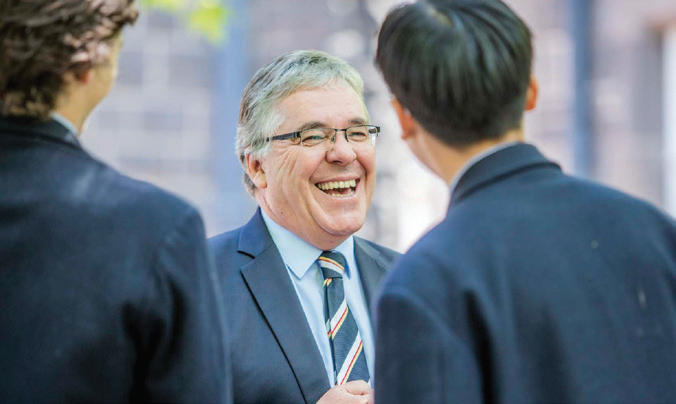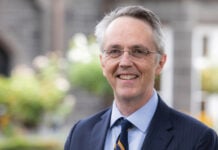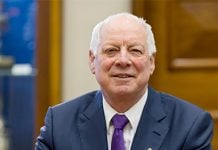Defining the term ‘legacy’ is difficult, given the word has a variety of different contexts and meanings. I know of people in charge of large organisations who become very protective of what they see as ‘their legacy’ when approaching the end of their careers. However, I strongly believe that the reality of one’s legacy lies with the people who are most affected by a leader’s actions. Sometimes it may be that one person’s perceived legacy is more a millstone around the neck for the community in question.
I wish to relate the concept of legacy to service learning at Melbourne Grammar School. I remember well my earliest attempts at community service when I was at school. This normally involved me and a few friends tin-rattling on a street corner or door knocking in the name of one charity or another. Whilst such activities made me feel good about doing something for others, especially those less fortunate than me and my family, I made no real connection with the charity involved.
Service learning is an experiential strategy that integrates meaningful community service with reflection to enrich the learning experience for students, teach civic responsibility, and strengthen communities. Accordingly, service learning involves students having a meaningful connection with a charity, cause or institution aimed at helping others and ‘giving back’. As Mahatma Gandhi once stated, “The best way to find yourself is to lose yourself in the service of others.” Many Melbourne Grammar students and families enjoy privileged lives, meaning that having the opportunity to help those less fortunate is crucial in developing empathy and respect.
Our service learning programme aims to have our students contribute actively in the community and engage their minds to develop informed, responsible and ethical actions. At Grimwade House, the building of social awareness and responsibility begins in Prep, with students encouraged to appreciate the value of helping each other. As students get older, the focus broadens to actions, including fundraising, which support people in need. At Wadhurst, examples include boys preparing lunches for disadvantaged students through the Eat Up initiative and contributing to the Make a Wish Foundation via ‘Crop a Kid’ Day.
Senior School students have the opportunity to volunteer in a number of local initiatives, including tutoring refugee children with the Smith Family Learning Clubs; breakfast programmes with the Prahran Mission; Aged Care Recreation with Benetas and mentoring with Ronald McDonald House. Furthermore, Year 10 and 11 students may attend service-based immersion trips, partnering with Aboriginal communities in the Cape York region, or organisations and villages in Vietnam.
This year, a group of Year 10 students raised almost $20,000 for the Vietnam programme, donating money to the Fred Hollows Foundation, the Agent Orange Centre, the Vietnam Friendship Village, and a housebuilding project in the Mekong Delta. The housebuilding project provided a new house for a disadvantaged family whose father was physically disabled, the mother was suffering from cataracts, their young son was diabetic, and they were living with the father’s parents. The donation funded the project and, during the trip, the Year 10 students were physically involved in building a new home for the family – an excellent example of a meaningful values in action programme.
Service learning forces young people to be less self-absorbed and to think about the lives of others. Important values of trust, respect and compassion are enhanced through community understanding and participation. The famous American poet, Henry Wadsworth Longfellow, once wrote “The life of a man (or woman) consists not in seeing visions and in dreaming dreams, but in active charity and in willing service”. It is my hope that Melbourne Grammar students will be involved in active charity and willing service throughout their lives. In doing so, they will leave a legacy which will extend well beyond what they might imagine…and far away from being a millstone for any community.
Roy Kelley Headmaster



